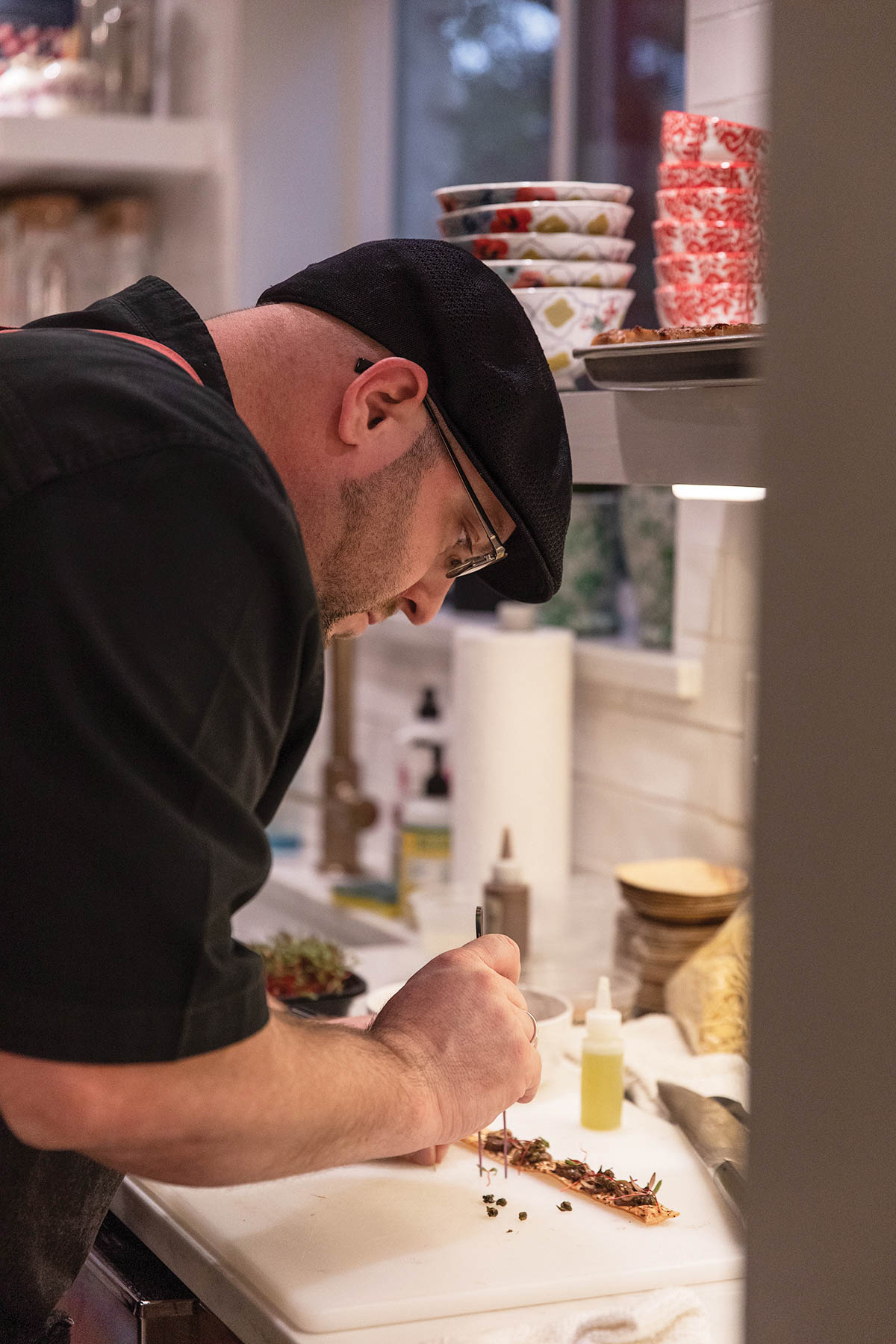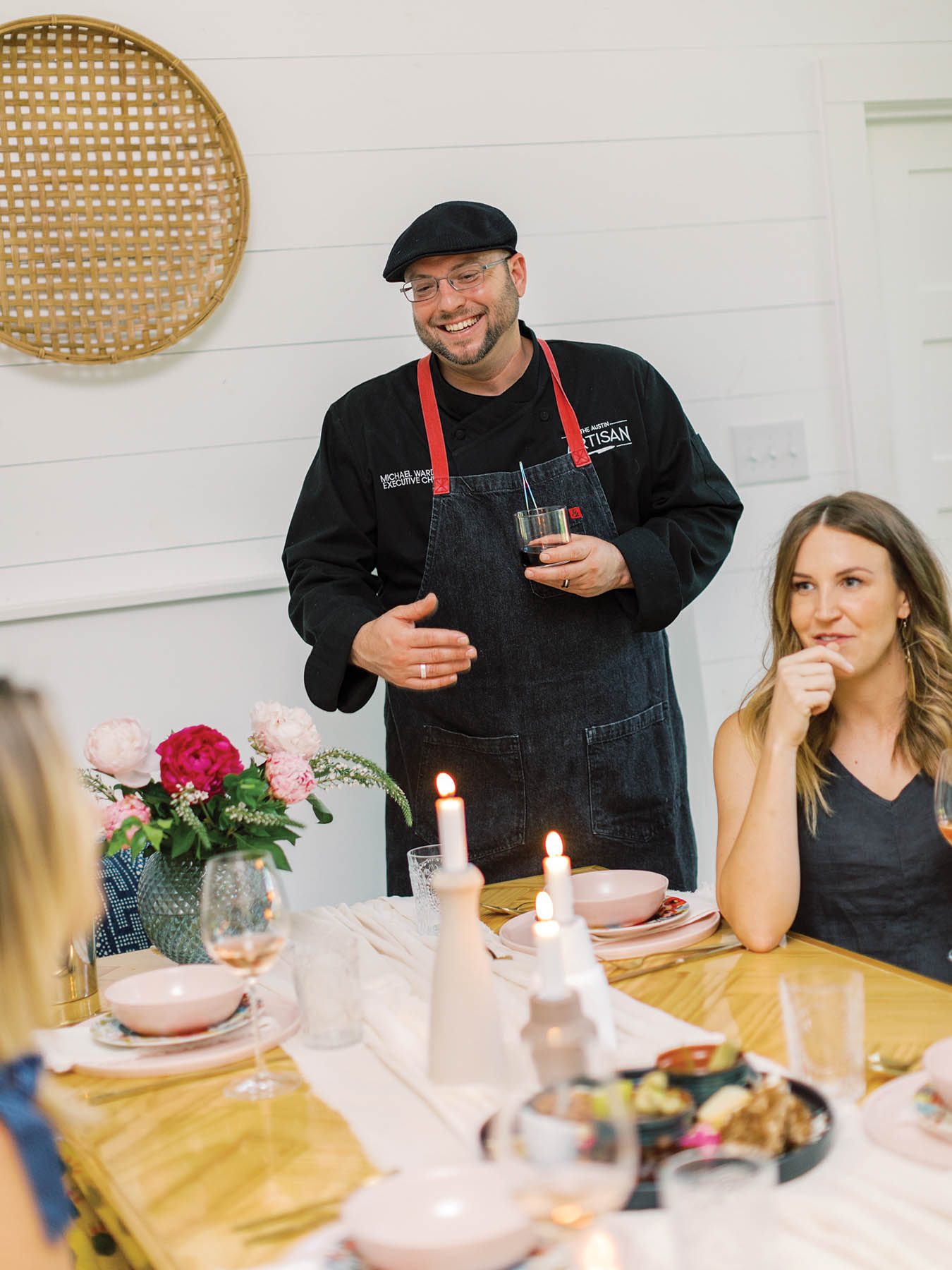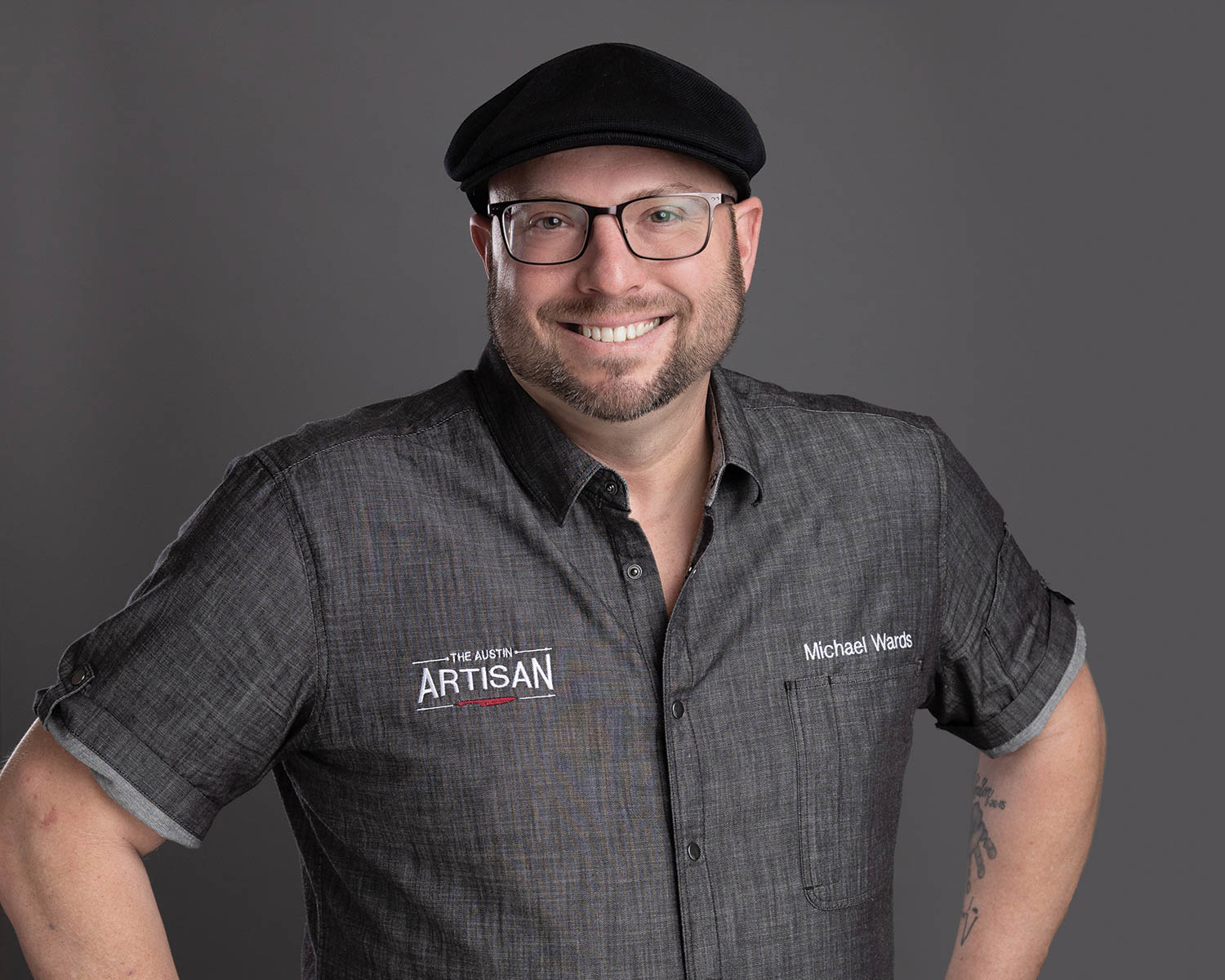Life of a Personal Chef According to Michael Wards

Food isn’t just a necessity; it’s an experience. A memorable experience that personal chefs like Michael Wards create with their cooking.
Aside from cooking great food, personal chefs wear many other hats — chef, business owner and manager. Their job differs greatly from that of a chef in a more traditional restaurant setting. Wards’ journey of building his personal chef company is only one small example of this.
Wards wasn’t always a chef. While he’s always had a love for food, he initially pursued a career in corporate America. Wards graduated from college with a marketing degree and later worked in a lucrative sales career. But in late 2009, he was diagnosed with Hodgkin’s lymphoma.

Photo courtesy of The Scout Guide Austin
“When you go through those pivotal health scare moments, you have a tendency to kind of take stock of everything — where are you, what’s going on,” Wards says.
During his medical leave, Wards decided to take the leap of faith and pursue a lifelong passion of his: cooking.
“I had a moment of clarity where I just realized (…) I wasn’t happy working in corporate America,” Wards says. “I was sick and tired of being sick and tired.”
After walking away from sales, Wards attended culinary school at Le Cordon Bleu. He later received his certifications and gained more experience in the kitchen by working a couple of jobs in the field, including a position as a catering chef for 2 Dine 4 Fine Catering and garde-manger supervisor at The Driskill Hotel. Once Wards felt he learned enough, he took the plunge into opening his own personal chef company, The Austin Artisan.
But what does it mean to be a personal chef? First and foremost, the role of a personal chef differs widely from a chef’s position in a traditional kitchen.
On one hand, being a personal chef means more creative freedom with cooking. Personal chefs are able to express themselves through the recipes they create and cook, an advantage that chefs like Wards value. Personal chefs are also able to interact with customers more.
However, being a personal chef comes with its own challenges. Wards says one of the biggest differences between being a personal chef and a traditional restaurant chef is the social aspect. You go from collaborating with a team to working completely alone. Many personal chefs spend late hours prepping food for their clients and events. They cook alone without the ability to fall back on a colleague to help them if something goes wrong. But the social transition and the cooking aren’t the hardest parts of life as a personal chef; it’s the entrepreneurship.
“The food’s the easy part,” Wards says. “It’s the other 80% of being a small business owner that becomes challenging.”

Photography credit to Korey Howell Photography
Personal chefs have to balance their cooking and creating food with building and operating a business. This includes building a brand, finding clients, creating menus, choosing vendors for ingredients and figuring out pricing.
Chefs like Wards become managers and culinary experts all in one. Luckily, Wards’ marketing background gave him a competitive advantage when he moved into the culinary world. He was able to build a brand and a strong digital presence for his business by using digital platforms such as social media and Yelp.
Wards was also able to choose to align himself with vendors he felt were responsible to the Austin community. This means working with vendors who were part of the Never Ever program, which avoids using things like steroids in their produce.
Being a personal chef gives the chef the freedom to follow their passions and become their own boss. They’re able to make decisions surrounding the menus, branding and more. A personal chef is more involved with every aspect of their business, and they choose what mark they want to make on clients. Chef Wards, specifically, wanted his legacy as a personal chef to focus on the experience his clients have.
“Most people in a culinary experience are likely to forget what they specifically ate in three to six months,” Wards says. “But they’ll always remember the experience.”






